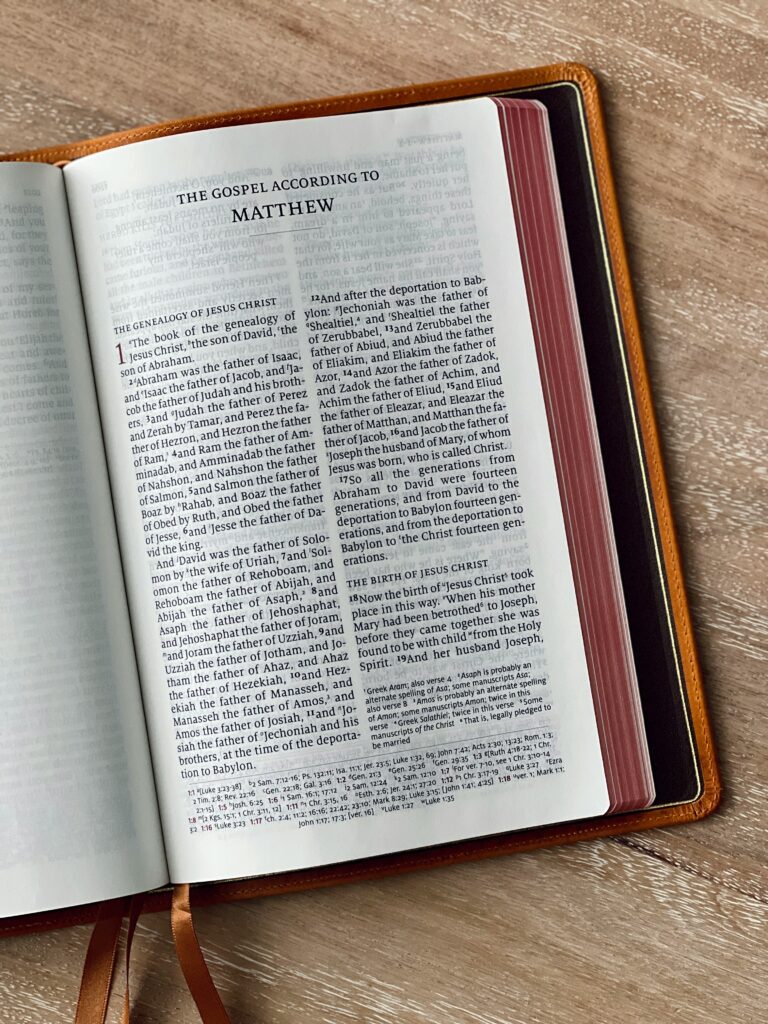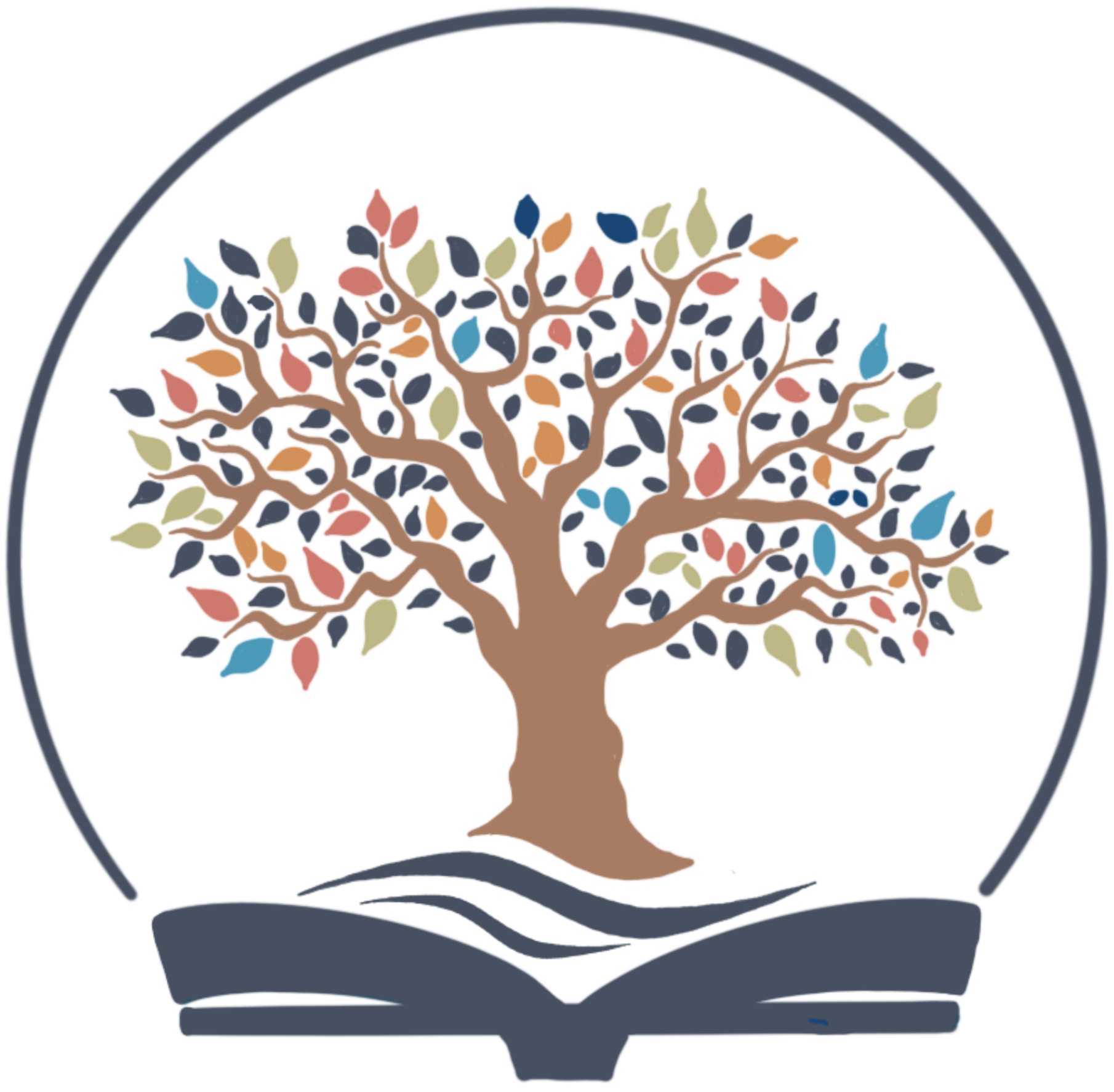Stop Skipping Genealogies

Are you guilty of skimming over genealogies when you read the Bible? Me, too! But here is why we shouldn’t. Genealogies are in the Bible for a purpose. There is important information we can gain from them that will help us understand God’s redemptive plan for humanity. This is especially important in the genealogy of Jesus we find in Matthew.
There are two significant elements to Matthew’s genealogy that help us to better understand God’s plan for the Jewish people and all of humanity.
Throne of David
“This geneoalogy establishes Jesus’ claim to the throne of David through his adoptive father Joseph. This is not the blood lineage through Mary, but the legal lineage of Jesus through Joseph.” (David Guzik) It was of utmost importance for the Jews that the lineage of the Messiah be traced back to King David as prophecies foretold.
8 “Now, therefore, thus you shall say to my servant David, ‘Thus says the Lord of hosts, I took you from the pasture, from following the sheep, that you should be prince over my people Israel. 9 And I have been with you wherever you went and have cut off all your enemies from before you. And I will make for you a great name, like the name of the great ones of the earth. 10 And I will appoint a place for my people Israel and will plant them, so that they may dwell in their own place and be disturbed no more. And violent men shall afflict them no more, as formerly, 11 from the time that I appointed judges over my people Israel. And I will give you rest from all your enemies. Moreover, the Lord declares to you that the Lord will make you a house. 12 When your days are fulfilled and you lie down with your fathers, I will raise up your offspring after you, who shall come from your body, and I will establish his kingdom. 13 He shall build a house for my name, and I will establish the throne of his kingdom forever. 14 I will be to him a father, and he shall be to me a son. When he commits iniquity, I will discipline him with the rod of men, with the stripes of the sons of men, 15 but my steadfast love will not depart from him, as I took it from Saul, whom I put away from before you. 16 And your house and your kingdom shall be made sure forever before me. Your throne shall be established forever.’” 2 Samuel 7:8-16
“The Hebrews recognized something called gematria, a system of assigning numerical values to certain words based on the corresponding letters of the Hebrew alphabet. When you add up the numerical values of the Hebrew consonants in David’s name, you get a total of 14. In addition, David’s name is the 14th in Matthew’s listed. Clearly Matthew intended to connect Jesus to King David.” (David Platt)
God cares enough to make it clear to us who He is. Through Matthew, He made it very clear that the promises of the Old Testament made to the people of Israel, were fulfilled in Jesus Christ.
Four Unlikely Women
Women were not generally listed in genealogies, so it is highly significant that Matthew lists four women in his account of Jesus’ genealogy. One might think that only the most pure of people would be in the lineage of the perfect, sinless Son of God. But that is not the case.
Tamar, denied marriage to Judah’s third son after the deaths of her first two husbands (both Judah’s sons) due to their wickedness, took matters into her own hands. She disguised and presented herself to Judah, her father-in-law, as a prostitute as an attempt to secure a son to be her first husband’s heir. By Jewish law, this was owed to her and her first husband. She was successful and bore twin sons, Perez and Zerah. Perez appears in the lineage of Jesus. (Story found in Genesis 38)
Rahab, a prostitute in the city of Jericho, played a pivotal role in aiding the Israelite spies as they prepared to conquer the land. Because of her assistance, God spared her and her family. Rahab’s legacy is significant because her son, Boaz, and her grandson, Obed, are listed in the lineage of Jesus. (Story found in Joshua 2 and 6)
Ruth, a Moabite (the Moabites came from the incestuous relationship of Lot and one of his daughters.), married a Jew when his family fled to Moab to escape famine. When Ruth lost her husband, father-in-law, and brother-in-law, she followed her mother-in-law, Naomi, back to Bethlehem, where she faithfully served Naomi. After a bit of innocent scheming, Ruth found herself married to Boaz. Boaz, a relative of her husband’s family, fulfilled the Levirate law that required a man to marry his brother’s widow if she was childless so that the brother would have an heir. Ruth’s son, Obed, is found in the lineage of Jesus. (Full story found in the short Book of Ruth)
The wife of Uriah (Bathsheba) found herself pregnant as the result an adulterous relationship with King David while her husband, Uriah, was out in battle. Following the failed scheme by David to get Uriah to sleep with his wife so he would think the child was his, David had him sent to the front lines to be killed in battle. David then took Bathsheba as his wife, and although their first child died, they later had a son, Solomon, who is found in the lineage of Jesus. (Story found in 2 Samuel 11)
Scholars do not agree on exactly why these women were listed in Matthew’s genealogy when women were not generally listed in Jewish genealogies. It does seem clear that to some extent they were all “outsiders” or “gentiles” and helps pave the way for Matthew to prove that the Messiah was to be for all people. Gentiles were part of God’s redemptive plan for humanity.
It is also clear, that along with many men listed in Jesus’ lineage, these women were not necessarily the innocent and faithful people you would expect to find in the lineage of the perfect, sinless Son of God. I believe God wanted to show that He can use imperfect, sinful people to bring about His perfect plans for His creation.
Questions to Ponder
What does God’s ability and choice to use these women to bring the Messiah into the world tell you about God?
How does understanding this about God’s character change how you view yourself and how you view others?
